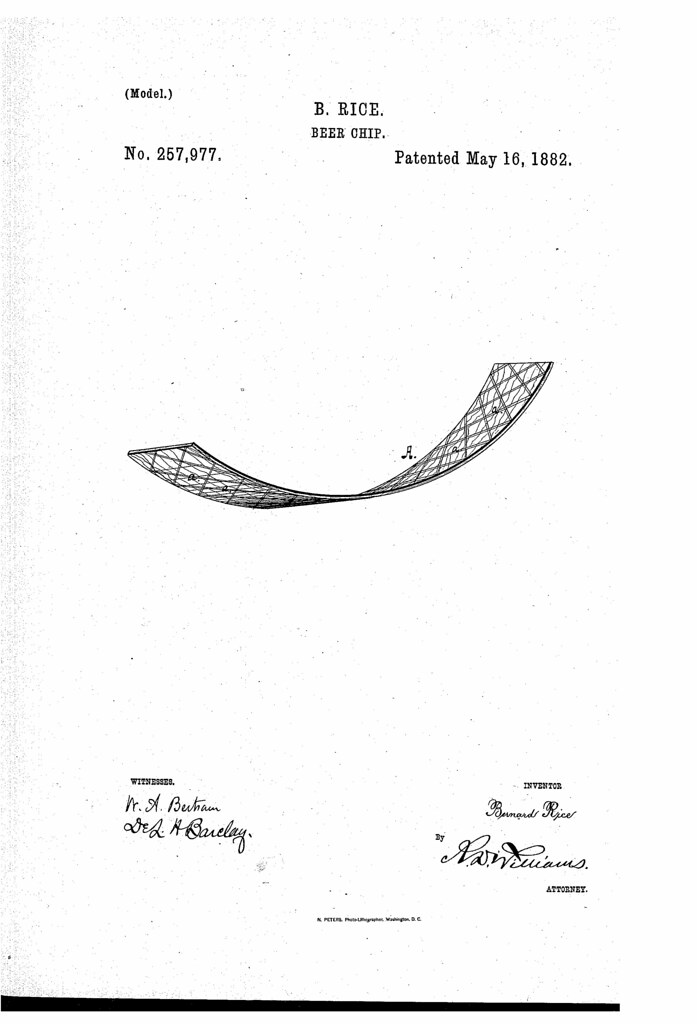
Today in 1882, US Patent 257977 A was issued, an invention of Bernard Rice, for his “Beer Chip.” There’s no Abstract, although in the description it includes this summary:
My said invention relates to the chips or shavings employed by brewers for clarifying the beer in vats or thus previous to kegging it. These chips consist of beechwood, by preference, and have heretofore been used in the form of thick shavings, or of sawed lath-like chips, straight and flat, or of a mixture of the two. Grave objections lie to either form, which it is the design of my invention to obviate. The shavings invariably break in numerous places on the convex side, form ing interstices into which the particles of yeast and impurities settle, rendering it impossible to properly cleanse the shavings in the usual revolving washers. The sawed chips, while not open to this objection, are deficient in superficies, are liable to pack and stick together, and on the whole are inferior to the shavings. The desideratum is a shaving or chip having a large superficies, curved so as not to pack nor adhere to other chips, tough enough to withstand the agitation in the washer without breaking, and one which will not mildew when kept in stock. Such a chip I have succeeded in preparing, and that at a cost less than that of the chips as heretofore made. In practice I cut a sheet of veneer from a revolving login the usual way, choosing by preference the inner portion of the log, which is free from knots, and comparatively free from resin, and thoroughly dry the sheet. Either before or after drying I cut it into chips about eighteen inches long by one and a quarter inch wide, and pass them between heated calender rolls. This process has the effect to compact the fiber and prevent the chips from becoming soggy and sinking in the vats, to toughen them and prevent them from breaking in the cask or washer, and it gives them a. permanent curvature, so that they never straighten out. It also increases the density of the wood, rendering it of substantially the same specific gravity as the beer, whereby the chips do not tend to float exclusively at the surface, but remain suspended in the beer. The calendering, furthermore, dries out the sap and resin.
In order to insure a proper bending of the chips, an extra roller or bender may be attached to the calendering machine; but that is not essential. The rolls may also have embossed figures or lines, so as to indent the chips and increase their superficies.

